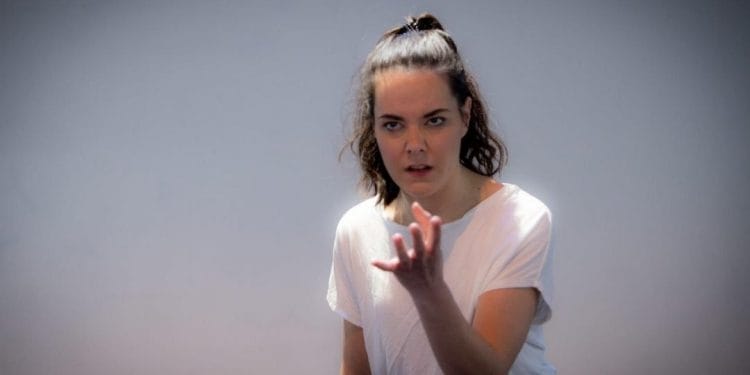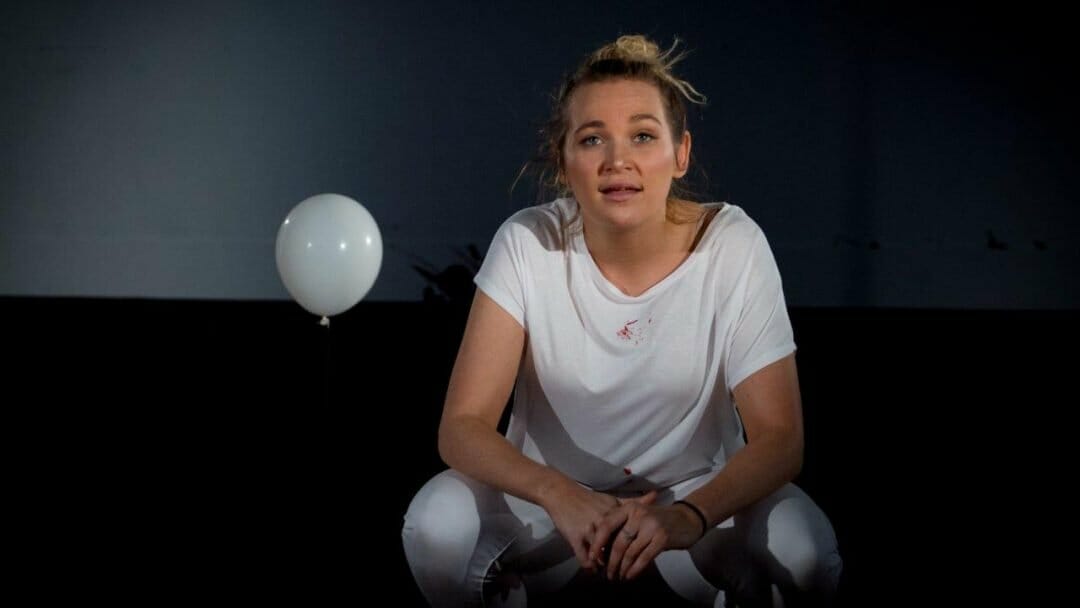 Being born in to hardship doesn’t necessarily mean that’s where you will stay, but the struggle to escape from the shackles of poverty and break the cycle is all the harder. Directed by Caitriona Shoobridge, Kat Woods Killymuck, which enjoyed a successful run at last year’s Edinburgh Fringe, and is now playing as part of a double bill with Box Clever at The Bunker Theatre examines in vivid detail the difficulties in growing up poor.
Being born in to hardship doesn’t necessarily mean that’s where you will stay, but the struggle to escape from the shackles of poverty and break the cycle is all the harder. Directed by Caitriona Shoobridge, Kat Woods Killymuck, which enjoyed a successful run at last year’s Edinburgh Fringe, and is now playing as part of a double bill with Box Clever at The Bunker Theatre examines in vivid detail the difficulties in growing up poor.
This semi-autobiographical piece is set from 1979 onwards, when Thatcher has just come to power, and inequality is rife. Niamh is born in to a dysfunctional family on The Killymuck estate in Ireland, rumoured to be cursed because it was built on the land of a paupers graveyard, the residents are all in difficulty, alcoholism and poverty keep the “benefits bastards” down, and only the prostitute next door seems to be living a comfortable life.
Aoife Lennon portrays not only our protagonist but the many characters from the Killymuck estate who form the wider community. She plays mother and father, as well as best friends and boys from the protestant school, because this isn’t just a play about poverty, it’s about differences and inequality. Northern Ireland’s abortion laws, the Enniskillen bombing and faith all feature in this memory of early life.
It’s a rich tapestry, sewn together with bitterness and regret. The characters feel very much alive, the way Lennon describes how the characters mother copes with having nothing but still needs to hold together the family is extraordinarily difficult to hear, much less comprehend. While comments around being jealous of a friend who has Sky TV rings remarkably true.
While the subject matter is at times distressing, it’s laced with exceptionally well written comedy, brought out by Aoife Lennon’s superbly layered performance, switching effortlessly from alcoholic father to bereft mother in a split second,
Minglu Wang has designed both productions, which see them share an almost identical set. White neon lights in the form of pillars surround the stage, flashing and pulsating to add hints of light and shade where required.
Killymuck doesn’t seek to find an answer to the problems of inequality, nor does Kat Woods try to suggest anything other than that money affords opportunity, and where that opportunity doesn’t exist the struggle is all the more difficult. As Niamh often looks to the Serenity Prayer for inspiration, we are left with a play that asks us how much are we actually able to change and what are we doing to change it?

















